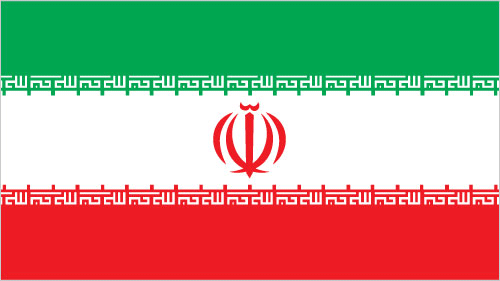
Source: World Bank
Relationships & Communication
. Iranians prefer to do business with those they know and respect, therefore they expect to spend time cultivating a personal relationship before business is conducted.
. Who you know is often more important than what you know, so it is important to network and cultivate a number of contacts.
. Expect to be offered tea whenever you meet someone, as this demonstrates hospitality.
. Since Iranians judge people on appearances, dress appropriately and stay in a high standard hotel.
Business Meeting Etiquette
. Appointments are necessary and should be made 4 to 6 weeks in advance.
. Confirm the meeting one week in advance and when you arrive in the country.
. It is a good idea to avoid scheduling meetings during Ramazan (Ramadan) as the need to fast would preclude your business colleagues from offering you hospitality.
. Arrive at meetings on time, since punctuality is seen as a virtue.
. The first meeting with an Iranian company is generally not business-focused. Expect your colleagues to spend time getting to know you as a person over tea and snacks.
. Be patient - meetings are frequently interrupted.
. Written materials should be available in both Farsi and English.
. Do not remove your suit jacket without permission.
. Do not look at your watch or try to rush the meeting. If you appear fixated on the amount of time the meeting is taking, you will not be trusted.
Business Negotiating
. It takes time for Iranians to become warm towards foreign businesspeople. Until then, they may appear somewhat stiff and formal.
. Personal relationships form the basis of business dealings.
. Decisions are made slowly.
. Iranians are deliberate negotiators who can drive a hard bargain.
. Do not use high-pressure tactics. They will work against you.
. Iranians may display emotion, or even walk out of the meeting, or threaten to terminate the relationship in an attempt to convince you to change your position.
. Iranians often use time as a negotiating tactic, especially if they know that you have a deadline. Be cautious about letting your business colleagues know that you are under time pressure.
. Companies are hierarchical. Decisions are made at the top of the company, either by one person or a small council.
Dress Etiquette
. Business attire is formal and conservative.
. Men should wear dark coloured conservative business suits.
. Ties are not worn by Iranians but it would not be seen as negative if you did so.
. Dress well to make a good impression.
. Women should always dress modestly and cover their hair.
Titles
. Address your Iranian business associates by their title and their surname.
. The title "doktor" is used for both M.D.s and Ph.D.s. Engineers are called "mohandis". These titles are are preceded by the formal titles listed below and are used with the surname.
. The title "agha" (sir) is used when addressing men. It may be used before or after the first name. The phrase "agha-yeh" is put before a surname.
. The title "khanoom" (madam) is used when addressing women. It may be used before or after the first name. The phrase "khanom-eh" is used before the surname.
. Wait to be invited before moving to first names. Only close friends and family use this informal form of address.
Business Cards
. Business cards are only exchanged by senior-level people.
. Since rank and position are very important, make sure your business card includes your title.
. Have one side of your card translated into Farsi.
. Present your card so the Farsi side faces the recipient.
Opening and closing times can be erratic, but you can rely on most businesses closing Thursday afternoons and Friday (the Iranian weekend). During summer, many businesses close during the hot afternoons, from about noon until about 4pm; along the blistering Persian Gulf coast, doors stay shut until about 5pm. The most likely time to find anything open is between 9am and noon, daily except Friday. In this book hours will accord (more or less) with the following list unless stated otherwise.
Airline offices Open 9am to 4pm, Saturday to Wednesday, and Thursday mornings.
Banks Open 7.30am to 1.30pm Saturday to Wednesday, 7.30am to 12.30pm Thursday.
Government offices Open offices 8am to 2pm Saturday to Wednesday, 8am to noon Thursday.
Museums Tend to open 8.30am to 6pm summer, 4pm or 5pm winter, with one day off, usually Monday or Tuesday.
Post offices Generally 7.30am to 3pm Saturday to Thursday, some main offices open later.
Private businesses Conduct business 8am or 9am to 5pm or 6pm Saturday to Wednesday, until noon Thursday.
Restaurants Offer lunch noon to 3pm, dinner 6pm or 7pm to 11pm, or whenever the last diner leaves.
Telephone offices Operate 8am to 8pm or 9pm; earlier in small towns.
Travel agencies Generally 7.30am to 5pm or 6pm Saturday to Thursday, 7.30am to noon Friday.